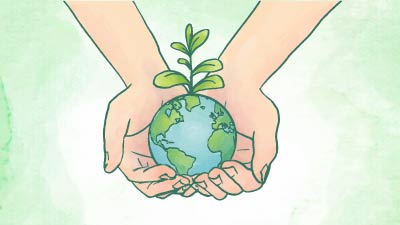Conservation by the People
- POSTED ON: 27 Oct, 2017
- TOTAL VIEWS: 954 Views
- POSTED BY: Ramnath K. Chandrasekhar
- ARTICLE POINTS: 100 Points
Only less than 5% of forests in India are protected as national parks and wildlife sanctuaries. These forests are the birthplace of many rivers like the Ganga, Yamuna, Krishna and Cauvery that support millions of people in northern and southern India.
Kudremukh, in the Western Ghats Mountains, is a biologically rich habitat from where the rivers Tunga, Badhra and Netravati originate. In this pristine shola and grassland ecosystem, a government-owned company was stripping the forests bare for 30 years by mining low-grade iron ore.
When the lease ended, it was about to be renewed for a few more decades. But, dedicated efforts by the Bangalore-based non-governmental organisation (NGO), Wildlife First, backed by committed conservationists made the Supreme Court of India pass a landmark judgment to stop the mining operations in Kudremukh permanently.
This was achieved by people from different backgrounds like wildlife biologists, filmmakers, lawyers, journalists, farmers and teachers who joined hands to work towards protecting this incredible ecosystem. The campaign is a testimony that a small group of committed people can make a difference.
Here are some practical pointers for us to take part in nature and wildlife conservation efforts provided by conservationist and award-winning wildlife filmmaker Shekar Dattatri, who played an important role in the campaign through his advocacy film Mindless Mining: The tragedy of Kudremukh.
If you are a teacher, you can inculcate a love for nature among your students.
If you are a student, you can help convert your teachers and fellow students, as well as your parents and relatives, to the cause of conservation.
If you are a lawyer, you can help NGOs fight legal battles to save wildlife and habitats.
If you are a journalist, you can make a huge contribution through well-researched stories on nature and conservation.
If you are the CEO of a company, you can inculcate concern among your employees and also in other corporate leaders.
If you have a regular job, you can volunteer your time on weekends and holidays to conservation organisations.
If you are a government servant or a politician, you can help influence the right policies.
These are just a few examples of how everyone one of us can be involved in conservation. It is not enough for a few awareness campaigns and like-minded people working to save the Earth.
We need a sea of professionals as volunteers. This means each one of us, and everyone we know!
